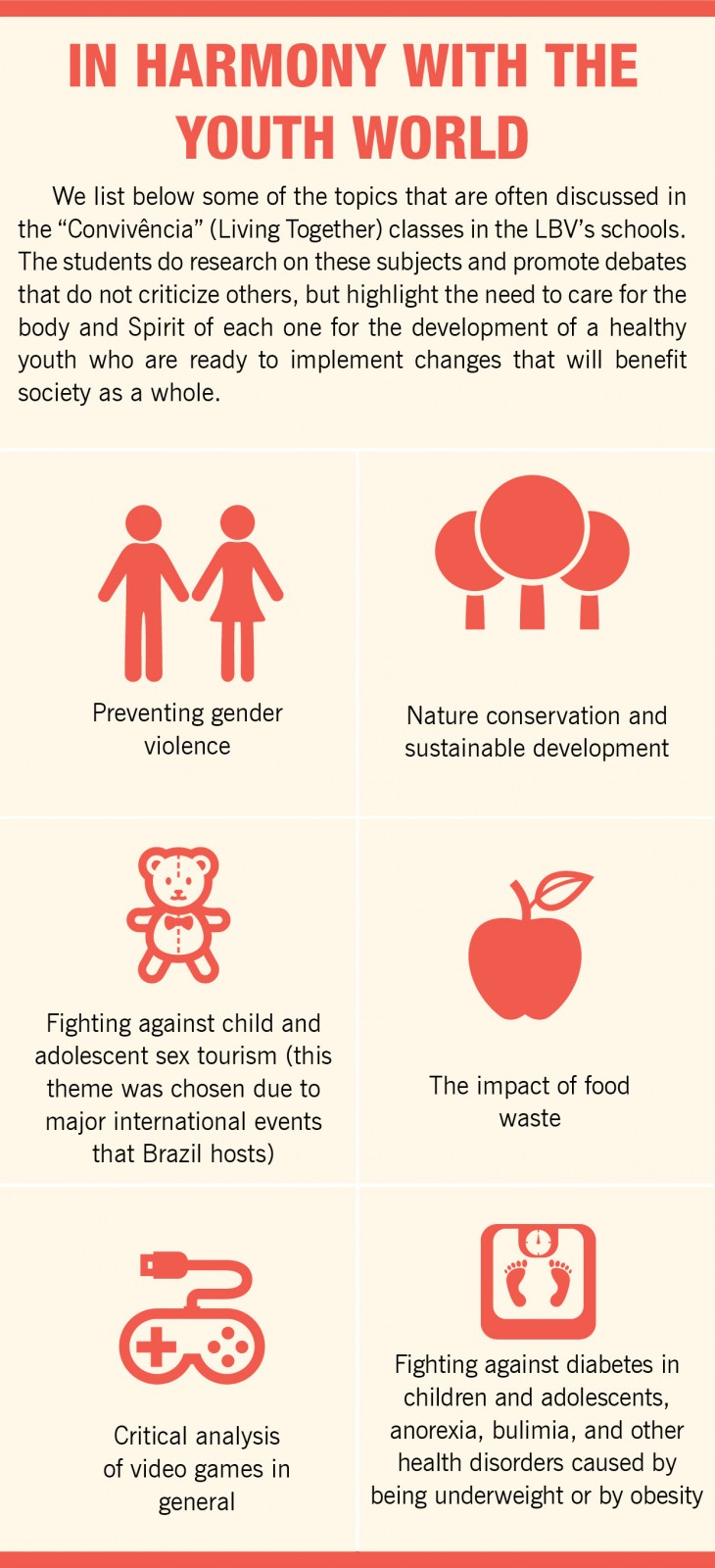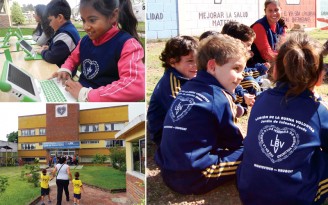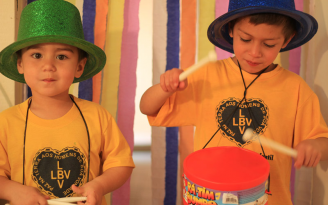
Educating Planetary Citizens
By the Editorial Staff
Friday | February 26, 2016 | 2:55 PM | Last update: September 22, 2016, 4:07 PM (Brasilia time)

The teaching method of the Legion of Good Will (LBV), devised by educator José de Paiva Netto, President of the Organization, is comprised of the Pedagogy of Affection (directed at children up to the age of 10) and the Ecumenical Citizen Pedagogy (starting at the age of 11). Its concept points to an education in which all the subjects on the school curriculum are combined with spiritual, ethical, and ecumenical values.
To apply this unique approach, as proposed decades ago by the creator of this pedagogical line, educators of the LBV’s teaching network developed the MAPREI (Learning Method through RationalEmotional-Intuitive Research), a methodology that proposes six action stages in the entire syllabus of basic education. The purpose of this facilitating educational tool is to guarantee greater involvement of children and young people during classes, making them co-participants in their own learning process. This is achieved by way of the attentive mediation of educators and other professionals, whether during formal education or recreational-pedagogical activities.
According to MAPREI, students are not mere listeners. During their academic journey, children and young people are motivated to research, discuss, and carry out actions that can bring about positive changes in society.
Because our students live in situation of social vulnerability, they are encouraged to participate in projects that help improve the structure of the places and surroundings where they live. Thus, solutions for the challenging issues of their community come up, which also benefit their families. This becomes even more evident in the final years of basic education when these young people are preparing for an important step in their academic lives: entering higher education. It is at this moment that we notice the result of the complete education they received at the LBV from a very early age, which is based on values of an all-encompassing Ecumenical Spirituality.
The applicability of this innovative educational concept is marked by the unique approach proposed by Paiva Netto that allies “Brain and Heart,” for it is necessary to invest in the development of the intellect without forgetting that we are all beings with a mind and soul that need spiritual comfort; in the words of the LBV’s president, we need to have “a view beyond the intellect.”
Teachers from the Legion of Good Will’s schools carry out researches with the students and hold discussions on topics that are part of an all-encompassing Ecumenical Spirituality curriculum that permeates the Organization’s teaching proposal of integrating development (feelings) with the indispensable information (intellect) in order to develop the students’ biopsychosocial spirit. The most important thing is that these actions have a great impact and they can be replicated, which makes the learning process even more enriching and participative, yielding good results for society.



